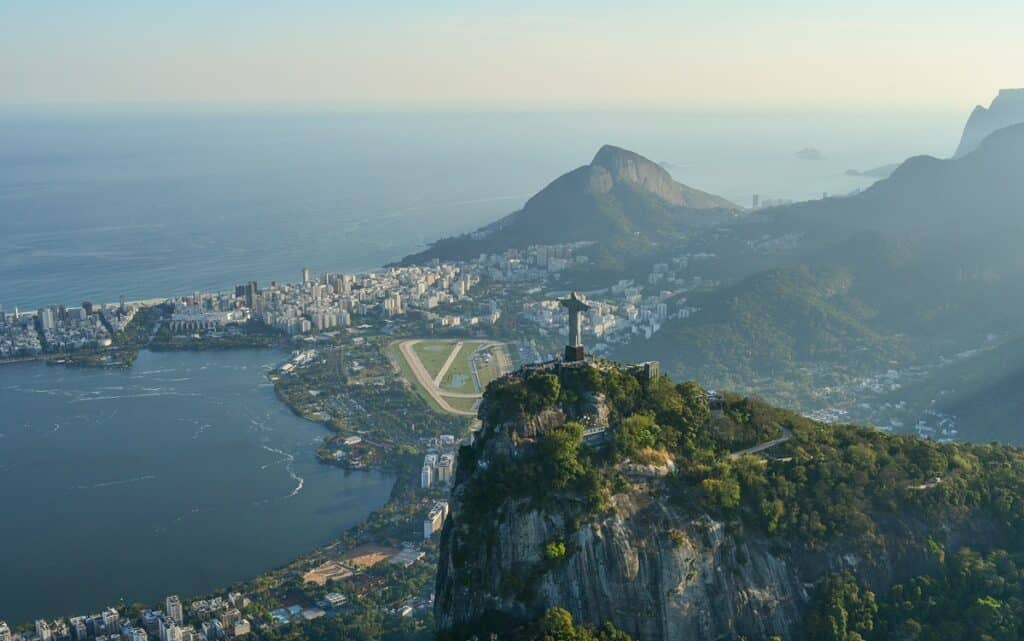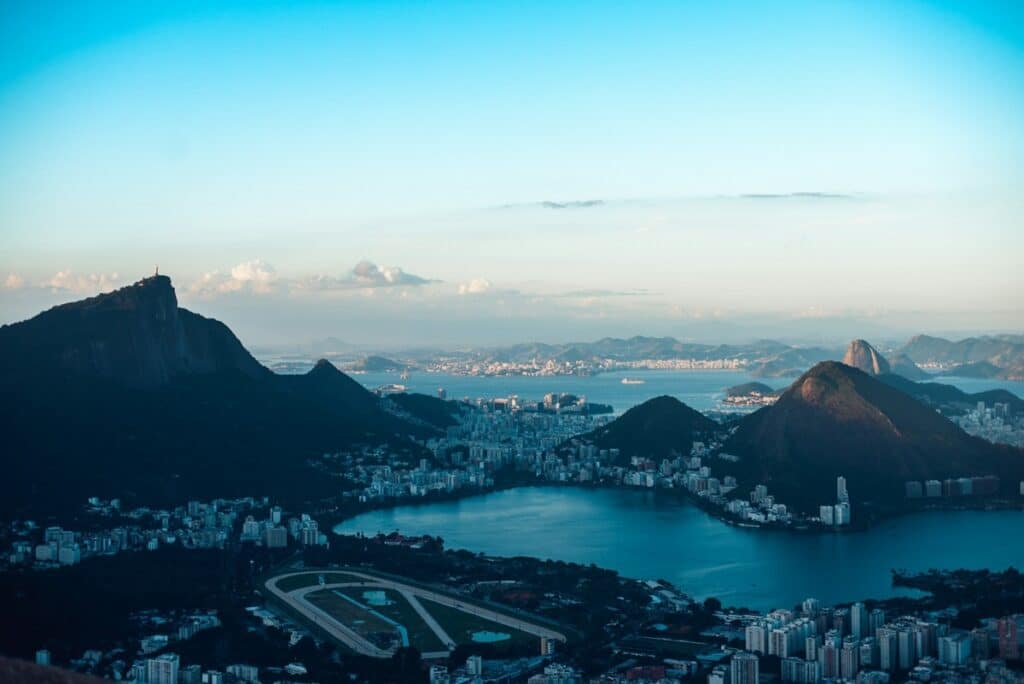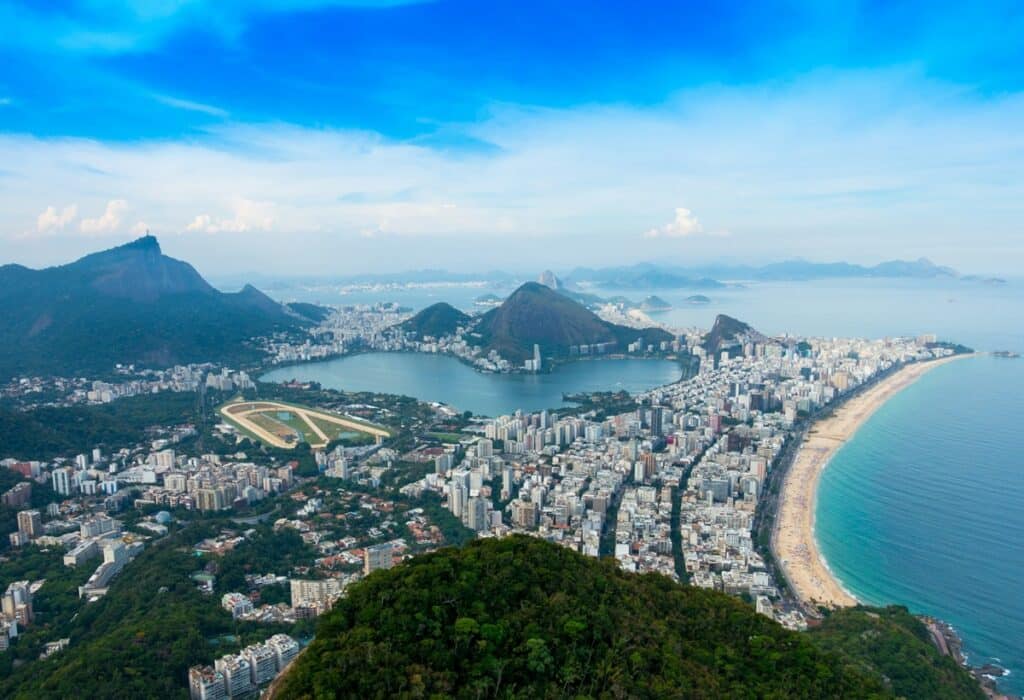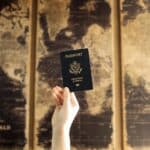Table of Contents
In 2024, U.S. citizens do not need a visa to travel to Brazil, only a valid passport. However, in 2025, they will need a visa or e-visa to enter Brazil for business or pleasure, effective April 10, 2025.
You need a valid passport and may need to show proof of funds and a return ticket. Some nationalities can travel to Brazil without a visa, so verify your visa requirements in advance.
Aviation safety and entry requirements can change, so consult a travel agent or monitor updates for the latest advisories.
Introduction to Brazil’s Visa Policy
Brazil’s visa policy promotes global tourism and business while prioritizing safety. Other countries may have different visa requirements than the U.S., so it’s essential to check if you need to apply for a visa or if you’re eligible for visa-free entry or an electronic visa based on your nationality.
Most people need a visa for Brazil, but crew members of international airlines and ships may have visa exemptions. Start the visa application process well before your planned departure.
Brazil’s Entry, Exit, and Visa Exemptions
Canadian and Australian citizens might enjoy visa exemptions for short-term visits, but they still need to meet other entry requirements. This includes a hotel reservation or proof of accommodation and demonstrating funds for their stay in Brazil. Diplomatic mission members from certain countries may also be exempt from visa requirements, simplifying their entry and exit process.
Countries With Visa-Free Access
Many countries have agreements with Brazil allowing their citizens to travel without a visa for limited periods, typically for tourism or business purposes. The length of visa-free stays varies by country. Check the latest Brazilian visa policy or consult the nearest Brazilian embassy or consulate before planning your trip to confirm your eligibility.
Special Circumstances for Travelers
Travelers with family ties or business obligations in Brazil may face additional or altered visa requirements. For example, individuals on a diplomatic or official mission or invited by the Brazilian government may have different entry protocols. It’s important to clarify your status and ensure you have the correct documentation to avoid issues upon arrival.

Types of Brazilian Visas and Application Processes
Whether for leisure, business, work, or study, you’ll need to navigate the appropriate visa category.
Each category has its own requirements and documentation, accessible through Brazilian government-authorized websites or your local embassy. The application process and necessary documents can vary, so early preparation is essential.
Brazil Visa Categories
Depending on the purpose of your visit, you may need a tourist, business, student, or work visa. Each category has specific criteria and documentation, so it’s important to know which visa aligns with your intentions. Consult the Brazilian Federal Police or a consulate for accurate information on visa types and the application process.
Tourist Visas
If you want to explore Brazil’s culture and landscapes, you’ll need a tourist visa. It allows travel without a visa for up to 90 days, but a valid passport and proof of funds are necessary. Be ready to show your return ticket and itinerary to the Brazilian Federal Police upon arrival.
Business Visas
A business visa is for those planning to engage in business activities in Brazil, like attending meetings, conferences, or short-term negotiations. It doesn’t allow employment but facilitates professional exchanges essential for international business relations.
Student and Work Visas
Longer-term stays in Brazil for education or work require a student or work visa. These visas allow legal study at Brazilian institutions or employment under Brazilian employers. It’s essential to start the application process early and meet eligibility criteria, as they often require additional documentation and approval.
Electronic Visas for Brazil
Brazil offers an electronic visa (e-visa) for certain nationalities visiting for tourism or business, streamlining the visa process. The e-visa application is an online process that eliminates the need to visit a consulate. You’ll need a notarized copy of your birth certificate.
Eligibility and Application Steps
The e-visa application is a simplified path to arrival in Brazil for eligible travelers. Check the authorized country list to see if you can get an electronic visa. The process involves submitting information and documents online, which is quicker than traditional visa applications.
Fees and Processing Time for E-Visas
The convenience of an electronic visa comes with fees and processing times. While the cost is generally lower than a traditional visa, budget for this expense. Processing times vary, so submit your e-visa application well in advance of your trip to accommodate potential delays and ensure a smooth arrival in Brazil.
Preparing for Your Trip to Brazil
Double-check your travel documents, visa status, health recommendations, and Brazil’s entry requirements before your departure.
Travel Documents Checklist
Before going to Brazil, make sure all necessary travel documents are ready. A valid passport is essential and consider their security. Have copies in case it’s lost or stolen, and keep them separate. Confirm visas or entry permits ahead of time to avoid travel issues.
Passport Validity Requirements
Your passport is essential for international travel, and Brazil enforces strict validity rules. Ensure it’s valid for at least six months beyond your planned exit from Brazil, a common requirement for many countries to accommodate unforeseen delays. Check the expiry date well before your departure for renewal if needed.
Necessary Vaccinations and Health Precautions
When traveling to Brazil, it’s crucial to have certain vaccinations. Highly recommended is the yellow fever vaccination, and proof may be required for entry. Other recommended shots include hepatitis A and B, typhoid, and rabies, depending on your itinerary. It’s also wise to pack personal medications and take precautions against mosquito-borne illnesses like Zika and dengue fever.
Entry and Exit Formalities
Double-check your travel documents before boarding. Ensure your visa is valid for your stay. Always carry photocopies of your passport and visa. Overstaying can lead to fines or legal issues, so plan your trip dates carefully.
Safety Tips for Traveling to Brazil
The State Department regularly updates travel advisories to help you make informed decisions about where and when to travel. Monitor your belongings, avoid walking alone at night, and choose transportation options wisely for a safe trip.
Brazil Travel Advisory Levels
Check the travel advisory levels issued by the Department of State before going to Brazil. These advisories classify regions based on safety and security risks, ranging from Level 1 (normal precautions) to Level 4 (avoid travel). Factors include crime rates, civil unrest, and potential natural disasters. Staying current with this guidance helps plan your itinerary in Brazil’s safest regions.
Health Risks and Medical Care in Brazil
Diseases like dengue fever and Zika virus are present, so take precautions against mosquito bites. Medical bills can be high for tourists, so ensure you have health insurance that covers your needs. Not all treatments may be legal in Brazil, so verify the legality of any medications you bring.
Accessing Medical Facilities and Services
In cities like Rio de Janeiro, there are various medical facilities. In remote areas, access may be limited, requiring medical evacuation for serious injury or illness. It’s wise to know the locations of hospitals and pharmacies near your destinations.
Health Insurance Considerations
Get comprehensive health insurance before your trip. Make sure it covers international travel and medical evacuation, as it can be costly without coverage.

Understanding Local Laws
Respecting and adhering to Brazilian laws ensures an enjoyable visit. Drug offenses carry severe penalties, and the legal system can be slow, so it’s best to avoid illegal activities. Be mindful of environmental laws, especially in protected areas, to preserve Brazil’s natural beauty.
Compliance With Brazilian Laws
Always carry a photocopy of your passport and keep the original in a safe place. This can help avoid complications with local authorities. Observe local laws, especially those about alcohol in public and night noise. Ignorance isn’t a valid defense, so seek clarification if unsure.
Assistance and Resources
If you need help in Brazil, whether for lost passports or legal trouble, the U.S. Embassy and consulates offer support to American travelers. They can assist with emergencies and provide resources to ensure your stay is safe and enjoyable.
Embassy and Consulate Locations in Brazil
Knowing the locations of your country’s embassy and consulate offices in Brazil is wise. These offices are accessible in major cities like Brasília, Rio de Janeiro, and São Paulo and provide travel information, emergency services, and legal support. Keep their contact information handy, as you never know when you might need their help.
Emergency Assistance for Tourists
In an emergency, tourists in Brazil have options for assistance. The tourist police are trained to help and are in major cities and tourist destinations. The embassy and consulates can provide support and guidance, including medical attention or in the event of a crime.
Navigating Brazilian Culture and Customs
When visiting Brazil, understanding local customs and etiquette can greatly improve your experience. Be mindful of the fast-paced lifestyle and business etiquette that may differ from back home in cities like São Paulo. Greetings with a handshake or a kiss on the cheek are common, and punctuality is valued, especially in a professional setting. Show respect during conversations and be open to learning from diverse perspectives.
Cultural Sensitivities and Practices
As you immerse yourself in Brazilian culture, be aware of the diverse religious and cultural practices. Avoid sensitive topics like politics and religion unless familiar with the company. Brazilians are proud of their heritage, so take the opportunity to learn about their history and traditions. Respecting their culture enriches your travel experience and fosters mutual understanding and appreciation.
Transportation Tips for Getting Around Brazil
Efficient transportation is key for an enjoyable Brazilian adventure. Brazil offers transportation options for city streets and coastal roads.
Public Transport and Road Travel Advice
If driving, learn local regulations and routes. Public transport varies by region, with metros, buses, and taxis. In major cities like São Paulo and Rio de Janeiro, metros are fast, while buses cover extensive routes. Plan your journey, considering traffic patterns and peak hours to improve travel time.
Renting Vehicles and Understanding Traffic Laws
Make sure you have a photocopy of your passport and an international driver’s license. Understand Brazil’s traffic laws, which may differ from those in your home country. Pay attention to speed limits and remember that seat belts are mandatory for all passengers.
Domestic Flights and Airport Transfers
Domestic flights in Brazil are a time-saving way to travel between distant cities due to the country’s vast size. Major airlines offer frequent routes, and booking in advance can secure better fares. Airport transfers like shuttle services and taxis connect airports to city centers.
Financial Considerations in Brazil
Understanding the local currency, the Brazilian Real, and having multiple payment options for convenience and security is important.
Currency and Money Tips
Stay informed about the exchange rate and consider exchanging money before arrival for immediate expenses. Smaller establishments may not accept cards, so it is wise to have cash on hand for everyday purchases. Always carry smaller denominations for simpler transactions.
Using Credit Cards and ATMs
Credit cards are widely accepted in Brazil, especially in urban areas and tourist hotspots. It’s advisable to inform your bank of your travel plans to prevent any fraudulent activity. ATMs are accessible but be cautious of your surroundings for skimming devices.

Conclusion: Ensuring a Smooth Journey to Brazil
Your trip to Brazil can be a tapestry of vibrant experiences, from samba in satellite cities to tranquil moments on public beaches. To ensure a smooth journey, familiarize yourself with visa exemptions and necessary travel documents.
Stay updated on local advisories and avoid isolated areas. Be vigilant for natural occurrences like flash flooding in Brazil.
Choose registered taxis over unmarked vehicles and be cautious with food or drinks from strangers. Know the traffic laws when driving in Brazil. Locate the nearest police station or consulate if needed. Check the latest health and safety guidelines, especially for international flights, for a secure adventure.
TravelVilla Guide is supported by readers. When you buy with our links, we may receive compensation at no extra cost to you. This helps support us, and allows us to keep providing reviews, guides, and content for you. Thanks for your support!




